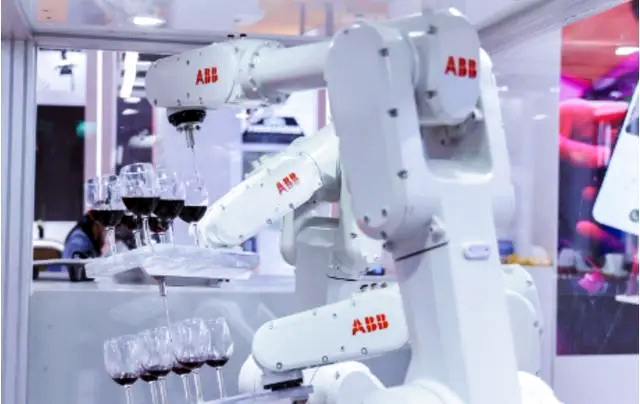 Rise of Chinese Robot Makers Is Not Unexpected, ABB Senior Vice President Says
Rise of Chinese Robot Makers Is Not Unexpected, ABB Senior Vice President Says(Yicai) Nov. 21 -- China is the world's largest robot user, and the fact that many Chinese companies are rising up to seize a greater slice of the market is not surprising, the senior vice president of Swiss electrical engineering firm ABB Group told Yicai recently.
Imported industrial robots used to monopolize the China market, said Henry Han, who is also president of the company’s Robotics China division. But Chinese robot makers are gradually expanding their footprint. This is history in the making, he added.
ABB, Germany's Kuka as well as Japan's Fanuc and Yaskawa Electric are the ‘Big Four’ companies in the industrial robot sector in China, which dominated the country’s market for a long time.
But last year, Chinese robot makers seized 52.4 percent of the market, outstripping foreign manufacturers for the first time in terms of sales, according to statistics by Shenzhen-based research and consulting firm Gaogong Industry Institue.
And in the first half, Chinese firms accounted for 50.1 percent, according to statistics from the Chinese industry database MIR Databank.
The competition is putting pressure on multinationals. In the third quarter, ABB's robotics and discrete automation business had an operating profitability of 4.1 percent, compared to 12.2 percent a year ago, according to the Zurich-based company’s latest financial report.
But Chinese industrial robot makers are still selling much less than their foreign peers. Chinese manufacturers need to fix some technological flaws and cannot only rely on a high price-performance ratio to lure customers, an employee at an industrial robot firm told Yicai.
The 'Big Four' all have headquarter-level research and development centers or megafactories in China. ABB's super plant in Shanghai's Pudong New Area, which is the company’s largest and most advanced in the world, came online at the end of 2022.
The megafactory has a designed output that is far higher than the existing demand in China, Han said. At present, 80 percent of the robots are destined for the Chinese market and 20 percent for export. The number of exports is increasing, he added.
In the future, more innovative products will be produced in China, Han said. ABB will continue to hike investment and production in the country. In Shanghai, the firm is investing around USD60 million to build a dry spray room, which is set to be ready by the first quarter next year, he added.
Editors: Shi Yi, Kim Taylor